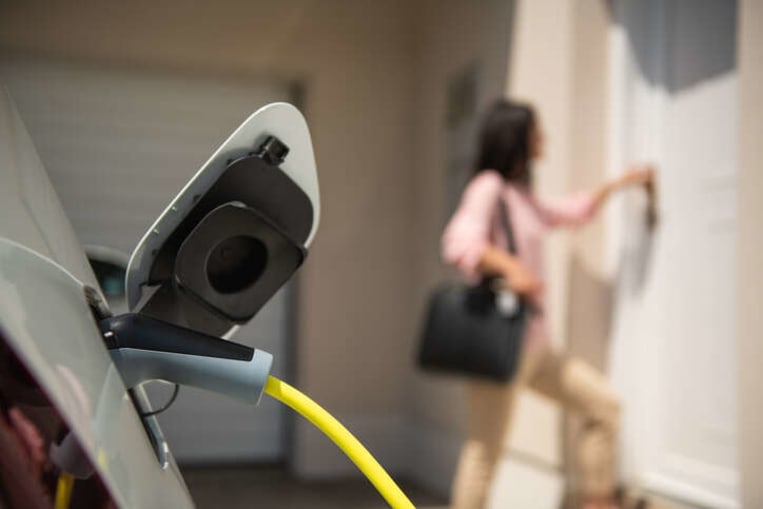
BBB Tip: 6 must-dos when shopping for an electric car

(Getty Images)
As electric vehicles become more widely available and less expensive, more drivers are considering buying one - especially in light of rising gas prices. Not only are electric cars great for the environment, they also require less maintenance. That said, there are several factors to consider if you are considering buying an electric car.
BBB recommends the following tips to help you decide whether an electric car is right for you and to make a wise purchase.
- Consider your driving needs. Most of today’s electric vehicles (EVs) can travel over 200 miles on a single charge. That’s more than enough range to cover most people’s daily commute. However, if you drive hundreds of miles each day, an electric car may not be a practical choice for you. You can take EVs on longer road trips, but keep in mind that you’ll need to plan out charging stops, which will add some time to a long-distance journey.
- Create a budget. As with any major purchase, you should examine your budget and make sure you can afford an electric vehicle beforehand. That means figuring out how much you can spend on a monthly payment and not just spending the maximum amount on any loan you qualify for. Keep in mind that while EVs have lower maintenance costs, base prices start around $30,000 and can run into six figures for higher end models.
- Factor insurance into your budget. Because they cost more than gas-powered cars, insurance is typically more expensive for EVs. Consumers usually pay more than 20% more to insure electric cars, so be sure to factor that expense into your budget.
- Search for incentives. Although the initial cost of an EV can seem intimidating, special incentives can bring the price down to a more reasonable range. For example, all-electric and even plug-in hybrid cars purchased new may be eligible for cash incentives that may be available from your state, province, and/or local governments and even your electric company. There are other incentives to consider as well, such as free parking, access to carpool lanes, and free charging stations.
- Have a plan for charging. Speaking of charging stations, you’ll need to think about how to charge your electric vehicle before you make the switch. Most people charge electric cars at home at the end of the day. Standard 110-volt wall outlets can do Level 1 charging for EVs, but that only adds about 4 miles of range per hour. For faster charging, you may need to hire an electrician to install a 240-volt outlet for Level 2 charging in your garage. Level 2 charging adds about 25 miles of range per hour. Factor any home upgrades you’ll need to make and the electricity you’ll use to charge your car into your budget. Keep in mind too that not all public charging stations are free. If you plan to use public charging stations at the office or somewhere else, investigate the cost ahead of time.
- Think about alternatives. If you’re still on the fence about buying an all-electric car, you could consider leasing one. Your monthly payments will be lower and you’ll find out if you like EVs enough to purchase one. Plug-in hybrids are another option for consumers who want to try out electric without making a complete switch. Another alternative is to buy a used EV at a lower price. If you do, keep in mind that with rapidly evolving technology, EVs can become outdated in just a few years. In addition, some EV batteries lose their ability to charge after a few years. This doesn’t mean buying a used EV is always a bad idea, but it does mean you should do thorough research before you close the deal.
For more information
Get more good advice by reading the BBB Tip: Buying a New Car. If you are interested in other ways to go green, read the BBB Tip: A consumer’s guide to going solar.
Read about BBB Accreditation Standards and BBB Standards for Trust.
Still Need Assistance?
Contact Your Local BBB
Your local Better Business Bureau can assist you with finding businesses you can trust. Start With Trust®.
Additional Resources
Let BBB help you resolve problems with a business
Research and report on scams and fraud using BBB Scam Tracker
Learn more about the value of BBB Accreditation